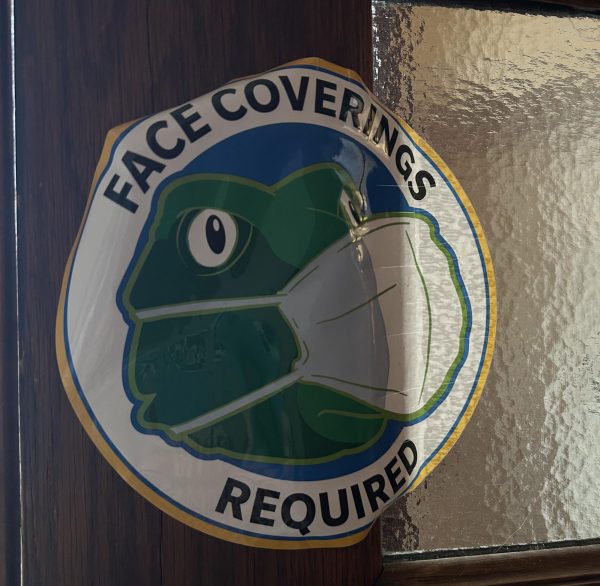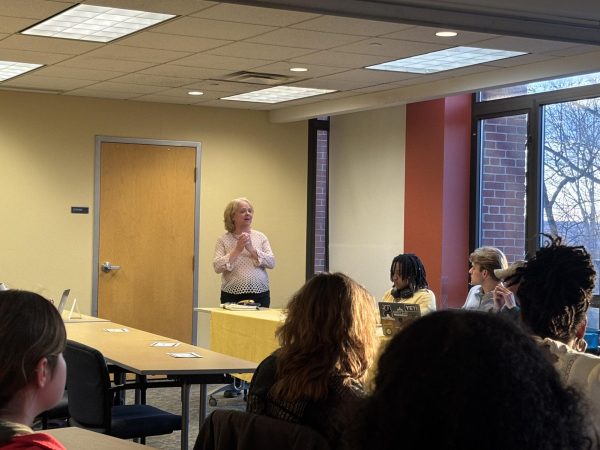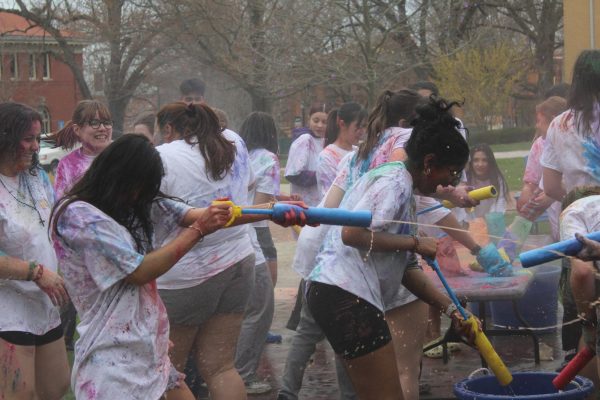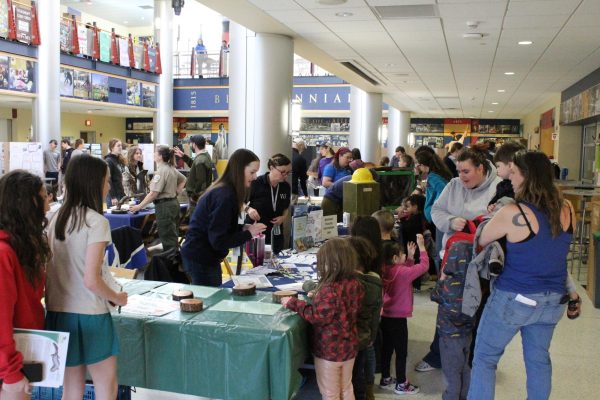Beehives added to Robertson
A small number of beehives were added to Robertson Athletic Complex during the week of April 26. The beehives are the result of a series of internships and independent studies done by students in the past several years.
“Ever since I started, students have asked about having honey bees (on campus),” said Garden Manager of the Carr Garden Kerstin Ams. “We had students working on a proposal for several years.”
Ams went on to explain that the project’s completion is largely due to the motivation of a core group of students who became interested in the project and did internships and research on what it would take to bring bees to campus.
“I had taken a small-scale agriculture class with (Ams),” Candace Burkhammer, ’21, said. “After that class, I wanted to further explore agriculture, so I asked her what there was available and she told me about the bee project that was happening on campus … I ended up doing an internship with a local beekeeper in Edinboro. After that, I got really interested in bees, and she told me that the bee project had been started … I hopped on board with that, and really pushed to get that done.”
The bees are a part of the college’s sustainability efforts, in addition to providing hands-on learning to the environmental science and sustainability majors. Within the ESS department, faculty members hope to fold the beehives into different classes such as small-scale agriculture and soil to plate, which analyzes where the food we eat comes from.
“(The soil to plate class) was created after the development of the Carrden so that students could get more of a hands-on look at what it takes to plant things, weed things, harvest them and cook with them as well as learn about sustainable agriculture,” said Director of Sustainability Kelly Boulton, ’02. “The hives can get folded into that class as well.”
In addition to the ways the hives can be incorporated into various different classes, they also create a number of internship opportunities within the ESS department.
“Just as the beehives came to campus as the result of a lot of students over many years working on research, I imagine we will have future internships where students will get a chance to either work hands-on with the hives or research to expand and improve our beekeeping,” Boulton said.
Ams was also excited at the prospect of additional work study positions and internships, saying that they “could evolve into anything, really” as students become more interested in different aspects of beekeeping.
The project was funded through Allegheny Student Government.
Part of the project’s funding came as a finance request by Students for Environmental Action (SEA), of which Burkhammer is President.
“It’s roughly going to cost about $3000, after all the extra jackets SEA is providing, all the tools, extra smokers, extra boxes and making sure that everything is there so that if the bees need to expand it is possible,” Burkhammer said. “We are getting more equipment and trying to provide more jackets so more students can go into the apiary, and have more sizes so that everyone has the option. We have been trying to support this project on campus. We think it is pretty important.”
A lot of work has gone into ensuring that the bees will have everything they could possibly need, as well as proper care and attention. Plans are already in place for local beekeepers to come in as needed to assist in the care of the bees, as well as from college employees who have experience in beekeeping.
“We are going to be going into the hives pretty often, definitely every other week,” Burkhammer said. “We have been feeding them a bunch, making (pollen patties) and sugar water.”
Boulton also explained that the bees, although not immediately adjacent to it, will still be able to easily navigate to the Carrden and have full access to the food sources they require.
The largest effort to protect the bees is a trail camera and electric fence, as there have occasionally been black bear sightings near Robertson.
The bees were not initially intended to be placed at Robertson, but their permanent location by the compost facility was decided upon as the best place for a number of safety concerns. These concerns included things such as students getting too close to the hives and getting stung, and intoxicated students knocking over the beehives and endangering the bees as well as themselves.
“We ran all the worst-case scenarios and there was enough reservation about having them on campus in the Carr Hall Garden or even in a more remote corner of campus that we knew if we kept pushing, we were going to get a ‘no,’” Boulton said.
Despite the unideal location, the bees will still be able to help the Carrden’s pollination needs as well as help the growing problem of endangered pollinators.
“All bees, pollinators in general, are on the decline,” Burkhammer said. “(Scientists) are having a hard time controlling this and doing something productive about it, so beekeeping has been one way that has been proposed to help with these efforts. So far it has been helping, but not a tremendous amount. Beekeepers every year are typically losing at least 60% of their hives, which is pretty crazy. We are hoping this will be a little more successful.”
As for the future of hives on campus, the consensus seems to be that they should take it slowly.
“Particularly when you are dealing with living creatures, it is really good practice to focus on what we have for the moment,” Boulton said. “Focus on these bees, become experts and see how it goes.”
In the immediate future, Boulton is currently planning an education campaign on the Roberston bees in conjunction with Maggie Baham, ’23.
“Having bees is great, but if students do not know about it, we are missing a really great opportunity,” Boulton said.
The biggest question on everyone’s mind is, of course: what is going to be done with the honey produced by the bees? Boulton expressed that after a while, when there is enough to harvest, there will potentially be featured at a local food dinner or at honey tastings in the Gator Quad.
“We want it as another key sustainability feature to the school, allowing students another hands-on form of education,” Burkhammer said. “Beekeeping can do this.”
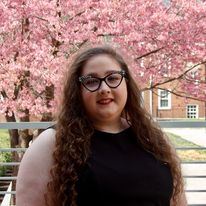
Kaleigh White is a senior from Linesville, PA. She is a double major in Theatre and Integrative Informatics with a focus on Marketing and Enterprise, with...





